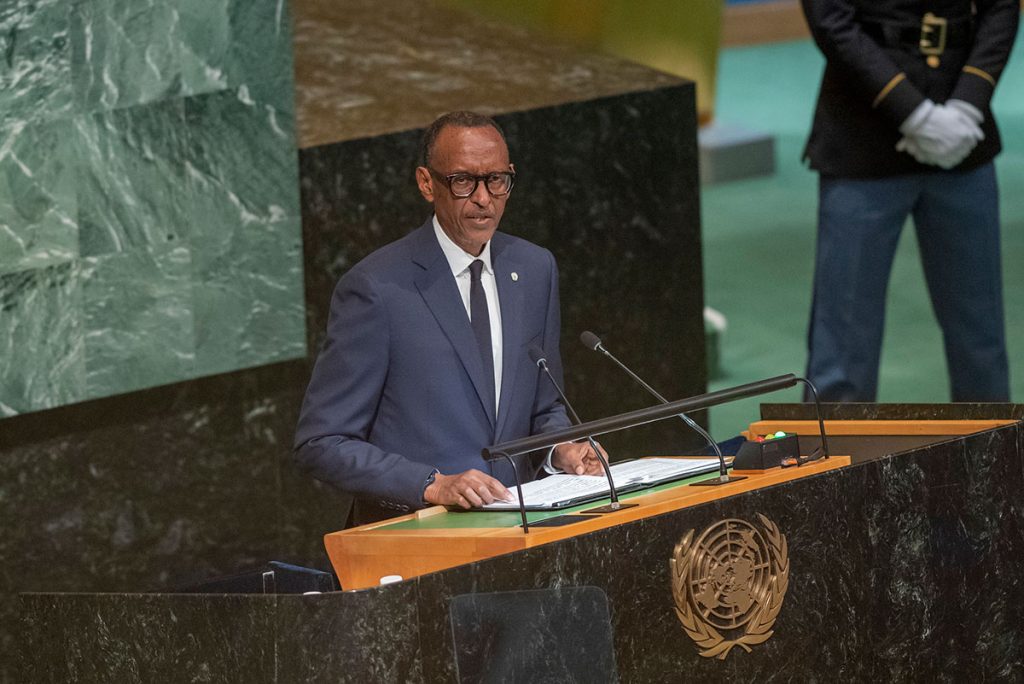The Secretary-General’s landmark report, “Our Common Agenda”, has only grown in value since it was launched one year ago. The world is in a state of turbulence, with intersecting crises growing in scale and severity, including climate change, food price inflation, conflict, and uncontrolled migration.
These challenges all require multilateral cooperation and efforts. Yet the perception, that the international system is no longer up to the task, has only deepened, particularly where the interests of powerful members are at stake.
In the eastern Democratic Republic of Congo, recent setbacks have served to highlight that the security situation is fundamentally no different than it was 20 years ago, when the largest and most expensive United Nations peacekeeping mission was first deployed. This has exposed neighbouring states, notably Rwanda, to cross-border attacks that are entirely preventable.
There is an urgent need to find the political will to finally address the root causes of instability in eastern DRC. The blame game does not solve the problems. These challenges are not insurmountable, and solutions can be found. This would ultimately be much less costly in terms of both money and human lives.
Despite shortcomings, there are examples to demonstrate that international cooperation can successfully address the issues that matter to all of us.
Global health is a case in point.
The Global Fund to Fight HIV, Tuberculosis, and Malaria has helped save countless lives in Africa and beyond, while also strengthening health systems. I hope that all countries will respond strongly, and sustain their commitments, at the 7th Global Fund replenishment session chaired by President Biden later today.
Africa is doing its part but must do more. For sustainability, external funding must go hand-in-hand with increased domestic financing for health. This is a priority which the African Union is tracking on an annual basis, and which I am honoured to lead on behalf of the organisation.
We are also working with partners to bring end-to-end vaccine manufacturing to our continent, notably through collaboration with BioNTech, and strong support from the European Union. This is critical to increase Africa’s resilience against future pandemics.
I commend the Secretary-General for convening the Transforming Education Summit earlier this week. The future of billions of children and young people across the world depends on overcoming the challenges of inclusion and quality of instruction, particularly as we recover from the pandemic.
Away from the headlines, the United Nations and other multilateral institutions retain the ability to set an agenda, around which we can all rally.
At the recent Commonwealth Heads of Government Meeting in Kigali, leaders adopted an ambitious program of action, including special instruments on Living Lands, Sustainable Urbanization, and Child Care Protection and Reform. We also agreed to prioritize public-private partnerships to create digital jobs for young people across the Commonwealth.
The future is digital and transformation is happening now, as evidenced by the ongoing work of the Broadband Commission for Sustainable Development and the Smart Africa Secretariat.
High-quality digital jobs are a practical response to the underlying drivers of irregular migration by closing the human capital investment gap that separates high- and low-income countries. To ensure that the benefits are equally shared, we must continue investing equitably in emerging technologies, such as artificial intelligence.
In the area of peacebuilding and counterterrorism, regional initiatives can complement the important work of the United Nations.
Regional or bilateral initiatives have been proven to make a big difference, whether in the Central African Republic, or the successful engagement to contain violent extremism in northern Mozambique conducted by Rwanda and the Southern African Development Community. If this approach were tried properly in DRC, as proposed by the Nairobi Process, it would make a difference.
However, to be sustainable, such efforts require consistent financial support from the international community.
A lot is at stake, and time is not on our side.
We cannot anticipate or prevent every crisis. But we can be better prepared to react quickly and effectively when needed, especially if we work together.
I thank you for your kind attention.

